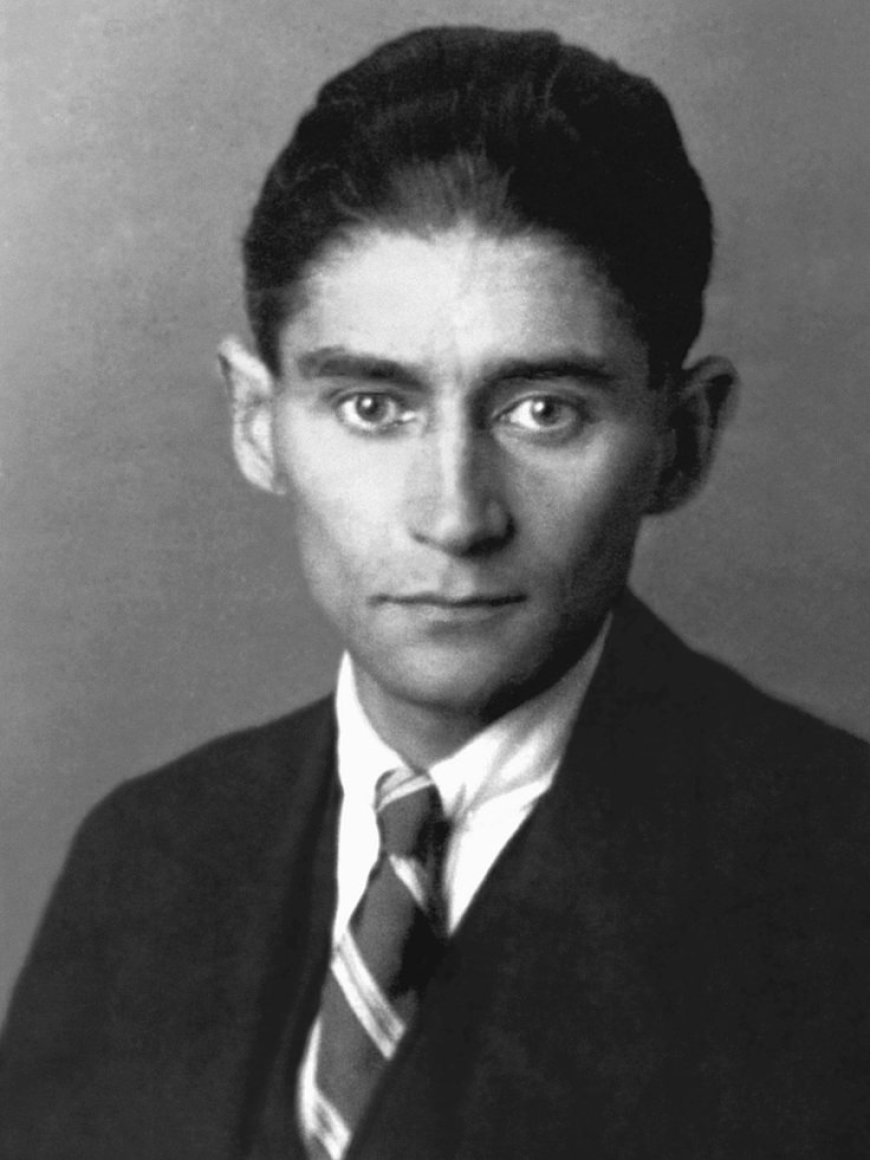The Haunting Allure of Kafka’s Writing.
Exploring the Depths of Franz Kafka’s Literary Legacy

Written by : vaishnavi sarve
Franz Kafka, a name synonymous with existential dread, bureaucratic absurdity, and the suffocating weight of modern life, remains one of the most enigmatic and influential figures in world literature. His writing is not merely a reflection of his internal turmoil—it is a mirror held up to the anxieties of the 20th century and beyond. With an uncanny ability to turn the mundane into the terrifying and the surreal into the painfully familiar, Kafka carved a niche in literary history that continues to echo in contemporary thought.
The Kafkaesque World
To enter Kafka’s world is to step into a realm where logic crumbles, identity blurs, and reality becomes a distorted labyrinth. His stories, often set in unnamed cities or oppressive institutions, explore themes of alienation, guilt, identity, and powerlessness. The term “Kafkaesque”—now a part of everyday language—describes situations that are nightmarishly complex, illogical, and impersonal, perfectly capturing the essence of his storytelling.
In works like The Metamorphosis, where Gregor Samsa awakens to find himself transformed into an insect, or The Trial, where Josef K. is arrested and prosecuted without ever knowing his crime, Kafka places ordinary men in extraordinary, inexplicable situations. These scenarios are not driven by dramatic events but by the psychological torment of facing an indifferent, often cruel, system—one that seems to mirror the complexities of modern life.
Writing as Survival
Kafka once said, “A non-writing writer is a monster courting insanity.” For him, writing wasn’t a profession or a pastime—it was an act of survival. Living a double life as an insurance clerk by day and an anguished, nocturnal writer, Kafka wrote in secret, often doubting his worth as an author. His journals reveal a man plagued by self-doubt, illness, and fractured relationships, yet his prose remained startlingly precise, sparse, and raw.
His language—deceptively simple, yet rich in philosophical undertones—conveys a constant sense of urgency. Kafka's sentences often build up with meticulous care, only to trap the reader in a web of unresolved tension. He deliberately avoids closure, allowing absurdity and dread to linger in the mind long after the story ends.
Legacy and Influence
Ironically, Kafka's literary fame came posthumously. Before his death from tuberculosis in 1924, he instructed his friend Max Brod to burn all his unpublished manuscripts. Thankfully, Brod disobeyed. His decision preserved The Trial, The Castle, Amerika, and dozens of letters, stories, and parables that now constitute the Kafka canon.
Kafka’s influence can be seen across genres and generations—from existentialists like Albert Camus and Jean-Paul Sartre to postmodern writers like Haruki Murakami and David Foster Wallace. In cinema, philosophy, political discourse, and even memes, Kafka’s vision of a chaotic, impersonal world remains disturbingly relevant.
Final Thoughts
Kafka’s writing defies easy interpretation. He offers no solutions, no comforting resolutions. Instead, he leaves us with haunting questions about our place in a world governed by faceless authority and internal conflict. Perhaps the true brilliance of Kafka lies in his ability to make readers uncomfortable—to force them to confront the absurdity of life and the vulnerability of the self.
In Kafka's world, the line between dream and reality is thin, and the real terror lies not in monsters or ghosts, but in the everyday experiences of being misunderstood, unheard, and unseen. Through his tortured brilliance, Kafka gave voice to the silent fears of a rapidly modernizing world—and, in doing so, became its most reluctant prophet.













































